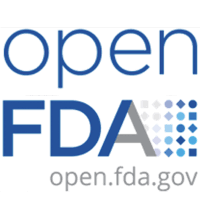Vioxx
See the following -
A 40-Year 'Conspiracy' at the VA
 Four decades ago, in 1977, a conspiracy began bubbling up from the basements of the vast network of hospitals belonging to the Veterans Administration. Across the country, software geeks and doctors were puzzling out how they could make medical care better with these new devices called personal computers. Working sometimes at night or in their spare time, they started to cobble together a system that helped doctors organize their prescriptions, their CAT scans and patient notes, and to share their experiences electronically to help improve care for veterans...
Four decades ago, in 1977, a conspiracy began bubbling up from the basements of the vast network of hospitals belonging to the Veterans Administration. Across the country, software geeks and doctors were puzzling out how they could make medical care better with these new devices called personal computers. Working sometimes at night or in their spare time, they started to cobble together a system that helped doctors organize their prescriptions, their CAT scans and patient notes, and to share their experiences electronically to help improve care for veterans...
- Login to post comments
Chinese Melamine and American Vioxx: A Comparison
In contrasting China and America, pundits often cite our free and independent media as one of our greatest strengths, together with the tremendous importance which our society places upon individual American lives. For us, a single wrongful death can sometimes provoke weeks of massive media coverage and galvanize the nation into corrective action, while life remains cheap in China, a far poorer land of over a billion people, ruled by a ruthless Communist Party eager to bury its mistakes. But an examination of two of the greatest public-health scandals of the last few years casts serious doubt on this widespread belief.
- Login to post comments
Clinical Decision Support Should Be Open Source
Clinical decision support is a long-standing occupant of the medical setting. It got in the door with electronic medical records, and has recently received a facelift under the term “evidence based medicine.”...
- Login to post comments
Creating EHRs that Doctors Don't Hate
 It may be difficult to recall now, what with the ongoing Cerner deployment and recent challenges that had little to do with technology, but there was a time when the Department of Veterans Affairs was considered the gold standard for healthcare IT. VA was out front with the initial development in the 1970s of the VistA system, which would come to be widely recognized and frequently honored. Indeed, when VA was overhauled in the 1990s, VistA was the primary tool that enabled the success of new policies. Without question, much of the effectiveness and durability of VA's VistA can be attributed to the way it was developed, specifically to the collaboration between technologists and clinicians that defined the process.
It may be difficult to recall now, what with the ongoing Cerner deployment and recent challenges that had little to do with technology, but there was a time when the Department of Veterans Affairs was considered the gold standard for healthcare IT. VA was out front with the initial development in the 1970s of the VistA system, which would come to be widely recognized and frequently honored. Indeed, when VA was overhauled in the 1990s, VistA was the primary tool that enabled the success of new policies. Without question, much of the effectiveness and durability of VA's VistA can be attributed to the way it was developed, specifically to the collaboration between technologists and clinicians that defined the process.
- Login to post comments
FDA Issues RFQ for Large Scale EHR Study - Wants to Leverage VA's Open Source VistA EHR and Database for Research
 The Food and Drug Administration (FDA) yesterday issued a Request for Quotation (RFQ) for a large-scale electronic health record (EHR) system. This RFQ is very important as the objective is to develop a platform to support a critical project by the FDA's Division of Bioinformatics and Biostatistics (DBB) "to conduct research to assess the safety and surveillance of FDA regulated products through the FDA adverse event reporting systems..." Adverse drug reactions are one of the leading causes of death in the US, thus finding which drugs cause negative interactions is of vital importance. The project requires "use of the large electronic medical record (EMR) system..." The project is going to leverage the largest, most comprehensive, and clinically relevant medical records database, that of the US Department of Veterans Affairs (VA).
The Food and Drug Administration (FDA) yesterday issued a Request for Quotation (RFQ) for a large-scale electronic health record (EHR) system. This RFQ is very important as the objective is to develop a platform to support a critical project by the FDA's Division of Bioinformatics and Biostatistics (DBB) "to conduct research to assess the safety and surveillance of FDA regulated products through the FDA adverse event reporting systems..." Adverse drug reactions are one of the leading causes of death in the US, thus finding which drugs cause negative interactions is of vital importance. The project requires "use of the large electronic medical record (EMR) system..." The project is going to leverage the largest, most comprehensive, and clinically relevant medical records database, that of the US Department of Veterans Affairs (VA).
- The Future Is Open
- Login to post comments
Low-Carb on Trial (Galileo Had It Easy)
A recent exposé in the New York Times[1] revealed massive and pervasive fraud and collusion between the sugar industry and certain medical authorities in the 1960’s designed to erroneously promote saturated fat as the culprit behind heart disease. Effectively diverting attention from the real source of the problem (the increasing consumption of dietary sugar), the food industry conspired with key authorities within the medical establishment to serve their own best interests at the expense of public health. Historic documents showed that they were intentionally concealing the fact that sugar, instead of fat, was knowingly to blame...
- Login to post comments